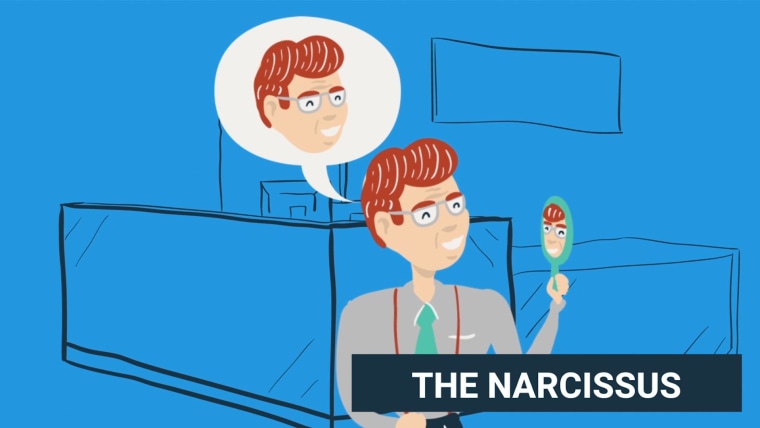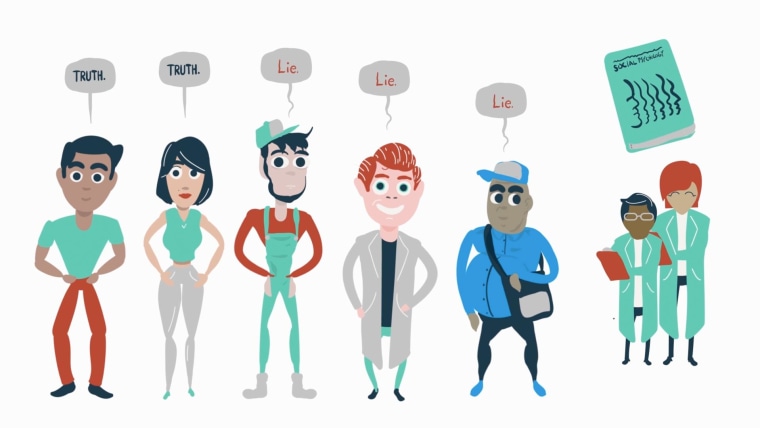The Words Are the Same Over and Over Again and I Know Itã¢â‚¬â„¢s My Fault
No one likes beingness cut off, bumped into or the recipient of a terse email. Nonetheless it happens all the time — both to u.s. and if you lot call back difficult plenty, you can probably think of something you did or said non too long agone that someone else may have seen as non so overnice.
Therein lies the problem, explains Michael P. Leiter, PhD, Professor of Organizational Psychology at Deakin Academy in Geelong, Australia. Rudeness happens when someone behaves in a fashion that doesn't align with the way someone else might call up is appropriate or civil, he says. "You can't really assume that the people you're encountering share your core values nearly how people should get along."
That applies whether y'all're at work, on a crowded train platform or elsewhere. And that means a lot of rudeness can exist and tends to exist unintentional, Leiter adds. "It comes from cluelessness, being inconsiderate, non thinking information technology through, or but not imagining that somebody could be offended by something."
And so why is information technology that seemingly innocuous, simple acts of rudeness can very apace ready us off or put a damper on the day? Because rudeness ("incivility" every bit psychologists sometimes phone call it) is anything but innocuous.
Such beliefs instigates a self-perpetuating wheel of negative behavior, hampering our productivity, our happiness and our health along the way.

Rudeness begets rudeness and hurts productivity
"Incivility is a virus," Christine Porath, PhD, Acquaintance Professor at the McDonough School of Business at Georgetown University and author of Mastering Civility: A Manifesto for the Workplace, says. "You touch it and unfortunately we often don't realize we pass it on to others."
Porath's inquiry shows that when people experience more than rudeness, they are less motivated, they actually cut back on the amount of effort they put into a certain task, and they are far more likely to leave an arrangement compared with organizations where there is less rudeness. Other research shows as incivility betwixt customers and workers increased with an arrangement, sales operation dropped and employee absenteeism increased.
More than experiments from Porath and her colleagues bear witness that fifty-fifty witnessing rudeness tin can injure performance scores when it comes to routine tasks (for this report the participants unscrambled purposely scrambled words) and creative tasks (the participants had to come up with an idea for how to use a brick, a brainstorming task oft used by psychologists to study creativity).
Rude deportment tend to trigger rude responses, creating a big negative spiral and a negative civilization, Porath explains.
That's not to say rudeness necessarily triggers assailment — as in most of the fourth dimension a coworker talking over you in a meeting won't necessarily atomic number 82 to a fist fight. Only people do tend to reciprocate in more subtle means, Porath notes. Think passive assailment, she says. "They're not helpful. They may insult each other dorsum and along. They may not share information with that person in the futurity — or non work as hard."

Rudeness is bad for our wellness and wellbeing
Rudeness is a stressor, Leiter adds. It affects our health and wellbeing because, he says, "emotionally, it's upsetting."
We tend to ruminate about rude interactions — maybe talking almost information technology with our friends, thinking nearly information technology later in the day, or letting it wake us upwardly in the middle of the night. That's because such interactions are an attack on a part of our identity, Leiter explains. Information technology tells us yous're non important plenty to be treated amend, he says — "y'all're not really a legitimate person."
And finally rudeness is so toxic considering of that negative spiral. The backwash of a rude run into driving to work or on an elevator might get brought to piece of work. "We take it out on others," Porath says. "We're frustrated, nosotros're short with people, we don't admit them, we don't listen to them or pay attention."
And most all of u.s.a. can likely chronicle to the fact that leaving the role in a bad mood makes information technology that much tougher to come home in a proficient ane. Experimental studies, also, accept documented this contagious upshot of rude behavior.
Breaking the cycle of rudeness starts with only beingness nicer
So what can you do to avoid and end the rudeness virus? Here's what the experts suggest:
1. Acknowledge people and express appreciation
Say hello, thank y'all, and all the other niceties y'all know. "The human action of kindness itself start irresolute the tenor of things," Leiter says. Survey data his enquiry group collected accept shown that the biggest predictor of how often people are rude to you is really ofttimes you are rude to other people.
2. Don't let rude beliefs fester
When someone does something rude and you lot internalize it, negativity festers, which tin lead to resentment, Leiter explains. Especially when information technology's someone you have a relationship with and see over and over again — family members, friends, or colleagues — information technology helps to express how you feel about someone's beliefs toward you, he says. "It's more than risky, but it's a powerful thing to do."
Susan Krauss Whitbourne, PhD, Professor Emerita of Psychological and Encephalon Sciences at the University of Massachusetts Amherst, suggests: "Use statements with 'I,' like 'I felt this say when this happened' or 'I'one thousand not sure if yous're enlightened how I felt when.'"
Recall of information technology every bit re-negotiating a amend way of getting along, she says.
3. Avoid rude people
Yous can't necessarily skip all interactions with a rude desk mate at the office. But limit information technology when you can, Leiter says. Skip the happy hour or long lunch if you know you're going to leave upset because of a sure private.
iv. Recall near how your behavior volition sit with others
Be wary of how other people might react to your behavior, says Trevor Foulk, PhD, Banana Professor of Direction and Organisation at the Robert H. Smith Schoolhouse of Business concern at University of Maryland. "Near interactions are ambiguous in terms of meaning," he says. "We know what we mean, but we're relying on the target to infer the significant we want."
(That applies especially to emails and text messages, besides, Foulk says.)
Let the niceness be contagious instead of rudeness.
5. Apologize if yous do detect yourself being rude
If and when you exercise notice yourself doing something rude, apologize, Krauss Whitbourne says. "Apologies and seeking forgiveness are very important for mental wellness."
And apply it as an opportunity to larn how to be nicer in the future, she adds. "Let the niceness exist contagious instead of rudeness."
6. Believe in decency
If you go around thinking anybody's out to get you, you lot're always going to be on the defensive and rudeness volition automatically follow, Krauss Whitbourne says. "The thought leads to the emotion, which leads to the behavior," she explains.
Instead, start with the supposition that people have good intentions. Information technology may sound similar the Polyanna-view, but you'll start approaching interactions (with strangers and probable with those you exercise know) in a much more than positive way. 1 manner to practice information technology, Krauss Whitbourne says: "Attribute bad behavior possibly not to the person, but to the situation."
We tend to forgive our own bad behavior hands or arraign information technology on being rushed, stressed, or any – however we tend not to cut others so much slack, she says.
If you get effectually thinking everyone's out to get you, you lot're always going to exist on the defensive and rudeness will automatically follow.
7. Grin!
Smile more than, Krauss Whitbourne says. "Smiles — 18-carat smiles — go a long way to counteracting rudeness," Krauss Whitbourne adds.
More than HOW TO GUIDES
- How to complain constructively (and get results)
- How to be a better dominate
- How to be a improve public speaker
- How to tap into a Zen feeling anywhere
- How to make friends as an adult
Want more tips like these? NBC News BETTER is obsessed with finding easier, healthier and smarter ways to live. Sign upwards for our newsletter and follow us on Facebook, Twitter and Instagram.
bradburyfortiough.blogspot.com
Source: https://www.nbcnews.com/better/pop-culture/why-rudeness-so-toxic-how-stop-it-ncna876131
0 Response to "The Words Are the Same Over and Over Again and I Know Itã¢â‚¬â„¢s My Fault"
Postar um comentário